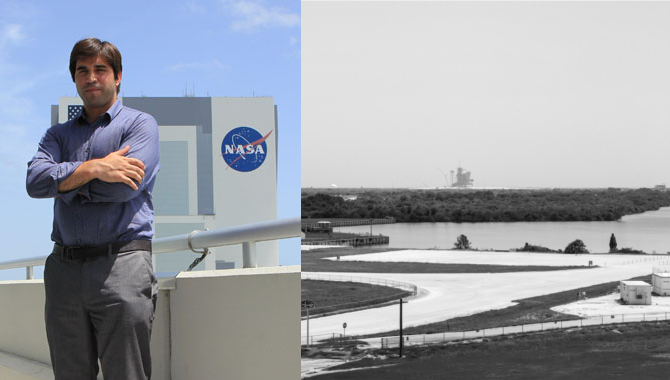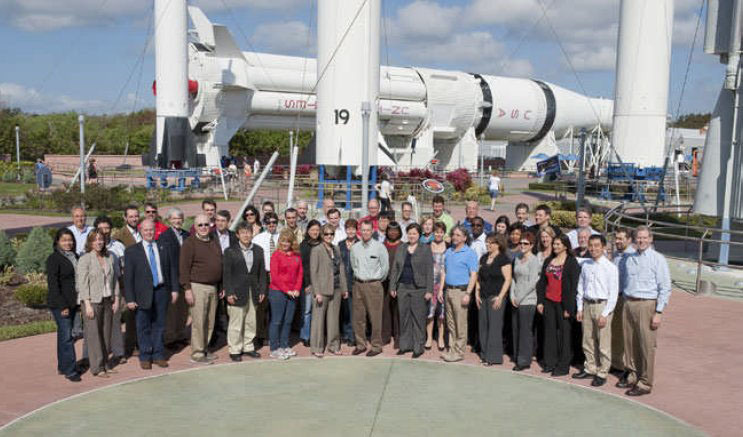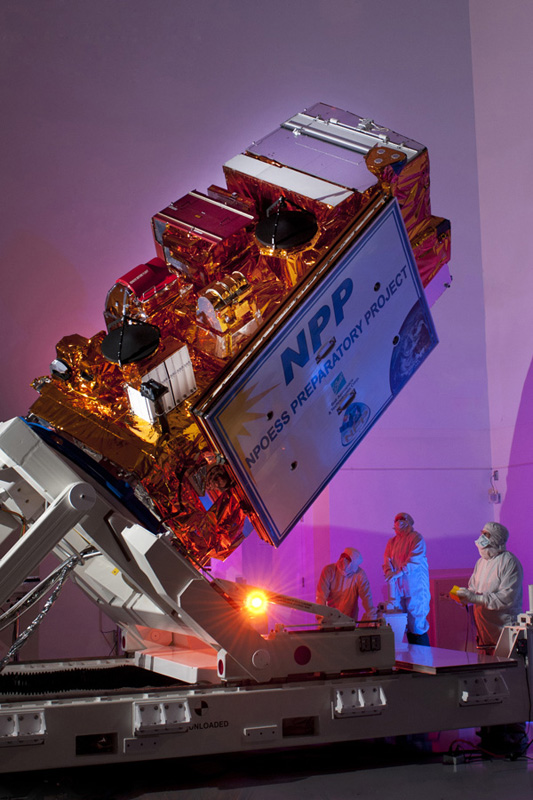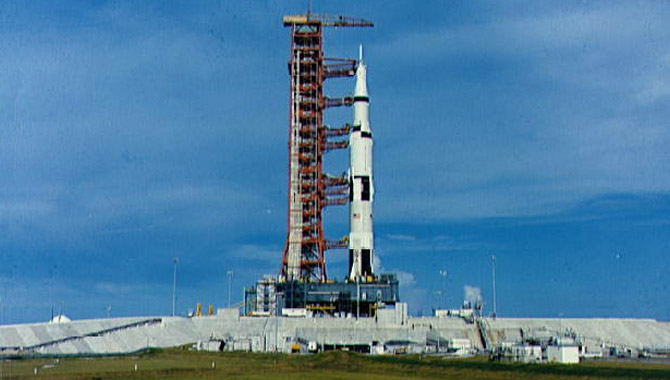
Julio Aprea, Project Controller at the European Space Agency (ESA), standing on the balcony of the Operations Support Building II (OSB II) at Kennedy Space Center for APPEL’s eighth International Project Management course. Photo Credit: Image courtesy of Julio Aprea.
July 31, 2012 Vol. 5, Issue 7
ESA young professional Julio Aprea learns that when it comes to managing international projects, theres rarely one right answer.
The eighth International Project Management (IPM) course hosted by the NASA Academy of Program/Project & Engineering Leadership (APPEL) took place at Kennedy Space Center from July 16-20, 2012. Participants from NASA, the Japanese Aerospace Exploration Agency (JAXA), Korea Aerospace Research Institute (KARI), Thales Alenia Space, Astrium, European Space Agency (ESA), German Aerospace Center (DLR), and the Argentine space company INVAP gathered for the five-day course.
For IPM course participant Julio Aprea, Project Controller at ESA, collaboration with other cultures and countries is an everyday activity. However, the course provided him with new insights about managing international projects and a better understanding of collaborating internationally, working across generations, honing his understanding of NASA as an organization, and learning about the project experiences of international partners.
“Right at the beginning I was a bit intimidated because I felt like the young one in the group. Most people were professionals with tens of years of project management experience. There was only one other person who was in the same situation as me. We were rookies compared to them,” laughed Aprea. The course featured a case study workshop, presentations from international partners, discussions about international project management competencies and international regulations and policies, a tour of the center, and informal networking opportunities.
“But soon after the course began I didn’t feel like anyone treated me differently for not being more senior. Everyone was great to talk to—there were so many people with such a variety of experiences coming from almost everywhere.”
Throughout the week, Aprea learned something new each day. For instance, a presentation on the history of project management at NASA enriched his current understanding of the organization. “It surprised me how good it was—not because I had low expectations, but because I thought I knew NASA and its history,” explained Aprea. “I was surprised about how different NASA centers also have cultural differences between them and how things can work differently from one center to another.”
Another highlight for Aprea was a presentation given by two JAXA representatives, who shared their project experiences, including the 2011 asteroid sample return mission Hayabusa, which encountered many challenges. “Two reaction wheels malfunctioned, there was a fuel leakage, there were problems with the reentry, many things went wrong, and yet the mission was a success,” said Aprea. They still learned from it. “We also got a lot of insight into how people on the project were motivated. This mission was long-term, seven years of development and seven years of operation. At the beginning of the mission they selected relatively young engineers, thirty-years-old or so, because they knew that in the long term they needed them to be there, and they explained how the [leadership] kept them motivated the whole way by using point-addition mission success criteria. It hit a little bit close to home.”
Throughout the week, interactive sessions also brought to light the variety of perceptions in the classroom, particularly a presentation on international ethics. The course instructor presented specific scenarios and suggested several options for the IPM participants to consider. Each participant had a chance to respond to the scenario. We voted and found that there was no unanimity ever on what is a good way of reacting to a situation because we are all from different cultures, said Aprea. What was entirely obvious to an American was the complete opposite for an Italian, an Argentine, or a Korean, and so on. I think that put things in a good perspective. It made people realize that there is not always one single answer to project decisions.
I think the aim of the course really helps [participants] get more of a grasp on all these international organizations, why we are so different, and why it sometimes seems to be difficult to work with because we approach things in a different way, said Aprea. I think the course is totally worth it. It is quite a unique experience.
Learn more about APPEL’s IPM course.
Julio Aprea, Project Controller at the European Space Agency (ESA), standing on the balcony of the Operations Support Building II (OSB II) at Kennedy Space Center for APPEL’s eighth International Project Management course.
Featured Photo Credit: Image courtesy of Julio Aprea.









